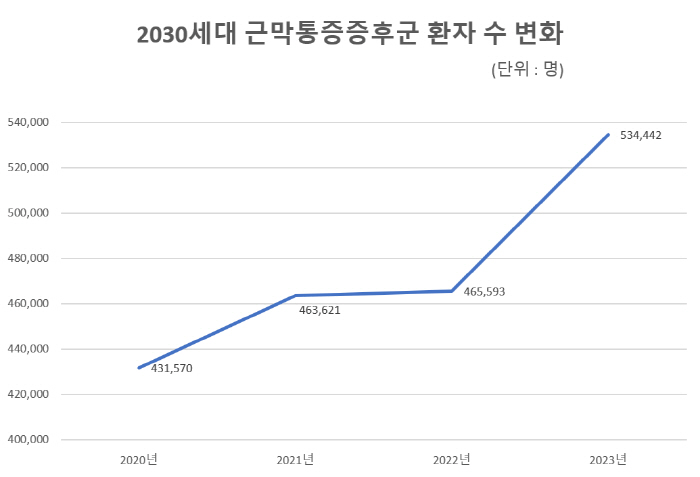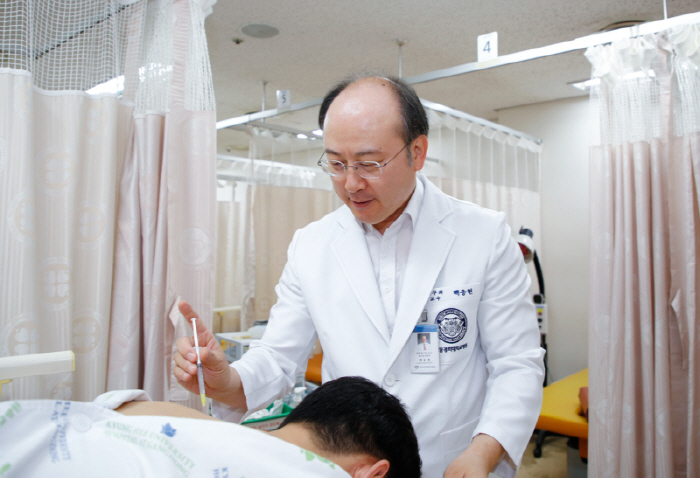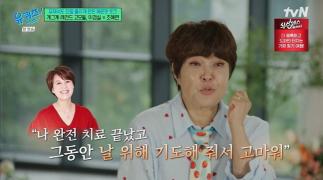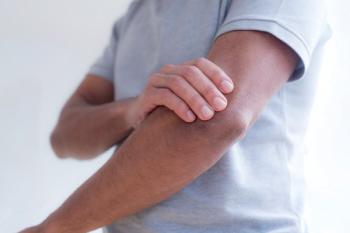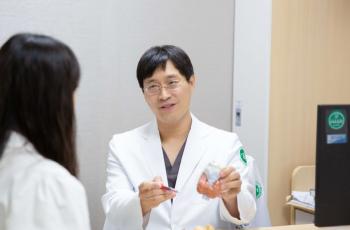I thought it was neck and shoulder... What is the difference between young office workers' fascia syndrome and muscle pain?
Jul 11, 2025
|
'Fascinal Pain Syndrome' is a chronic pain disease in the muscle and fascia, characterized by tingling and aching pain. It is easy to maintain the same posture for a long time or occur in young office workers due to stress, so caution is needed. If it becomes chronic, it is difficult to improve easily, but early diagnosis and treatment can relieve pain and prevent recurrence. Professor Baek Yong-hyun of the Department of Bedding at Gangdong Kyunghee University Hospital examines the causes and treatment methods of fascia syndrome from the perspective of oriental medicine.
◇ Different from normal muscle pain 'Fascinal pain syndrome', persistent pain and tingling characteristics
Myofascial Pain Syndrome is a chronic muscle pain that causes pain in the muscle and its surrounding fascia. Excessive use of certain muscle areas builds tension, and the muscles contract or harden in a relaxed state, resulting in persistent pain. It usually occurs in the back neck, shoulders, and waist, but can appear in any area with muscles and fascia. It is characterized by a stabbing feeling when pressed and a 'referred pain' that spreads pain to the surrounding area, and muscle contraction and relaxation functions may be deteriorated.
The degree of pain is from mild discomfort to strong enough to lose sleep, and symptoms become severe if the same posture is maintained for a long time. Fascinal pain syndrome is easily confused with common muscle pain, but the difference is clear. While common muscle pain occurs temporarily in certain areas, patients with fasciologic pain syndrome mainly complain of symptoms such as "muscles continue to clump together" and "Pressure is tingling".
|
Fascinal pain syndrome is usually common in the elderly, but the prevalence rate is also increasing recently in the 20s and 30s. In fact, the number of patients in their 20s and 30s has steadily increased since 2020, reaching 534,442 in 2023. It is known to be caused by excessive muscle use, stress, external shock, and musculoskeletal degeneration. In particular, the younger generation's lifestyle of working in the same posture for a long time or using smart devices is the cause of the outbreak. In addition to excessive neck, shoulder, and waist muscles, stress, lack of sleep, and excessive caffeine intake are also cited as major factors that hinder muscle recovery. In particular, as the number of younger generations participating in activity sports such as climbing, water skiing, and wakeboarding has increased recently, there are many cases of overusing muscles that have not been used, so caution is needed.
◇Fascinal pain syndrome viewed by the blood circulation and autonomic nervous system
In oriental medicine, fascia syndrome is diagnosed in terms of air circulation disorders and autonomic nervous system imbalances, not just muscle problems. Patients with muscle pain use body composition tests, X-rays, MRI, etc. along with physical examinations to identify the cause of the pain, and then comprehensively evaluate the cardiovascular circulation and autonomic nervous system status through oriental medicine tests. At this time, oriental medicine tests are mainly performed on DITI (infrared body heat test) and HRV (autonomous nerve function test).
Acupuncture, moxibustion, and herbal acupuncture are applied to the pain-inducing point, and if necessary, Chuna therapy or herbal medicine prescription are combined to relieve the pain. Beyond simple pain improvement, these treatments also help restore the balance between the cardiovascular circulation and the autonomic nervous system, enabling more fundamental treatment. Professor Baek Yong-hyun said, "Fascinal pain syndrome is diagnosed early, and constant treatment and self-management are combined to prevent recurrence and help fundamental recovery."He emphasized the importance of early diagnosis.
◇Pain-catching oriental medicine routine and personalized management of the body are important
If you have been treated for fasciologic pain syndrome, it is important to improve your lifestyle and prevent recurrence. Efforts are needed to check and correct your usual posture, eating habits, and sleep habits. Do regular stretching while on duty and be careful not to bend your head for a long time when using your smartphone. In addition, reducing late-night snacks and excessive caffeine intake helps muscle recovery.
Identifying one's constitution through expert counseling and taking medicinal foods or body medicines accordingly is also effective in relieving symptoms and preventing recurrence. It is also helpful to drink oriental medicine tea consistently, which helps blood circulation. Typically, ginger tea and turmeric tea have anti-inflammatory and analgesic properties, so they are effective in relieving inflammation and relieving blood circulation and muscle tension. Inducing acupuncture stimulation through simple stomata or Doin exercises that can be done at home also helps relieve blood circulation and tension.
◇ Coolness causes pain, be careful of the temperature difference between the cold wind in summer
In the hot summer, it is inevitable to use air conditioners such as air conditioners, but cold winds and indoor and outdoor temperature differences worsen pain. The cold wind stiffens muscles and ligaments, and the pain becomes severe when the muscles contract or blood circulation decreases due to sudden temperature changes. To prevent this, keep the indoor and outdoor temperature difference within 5 degrees and be careful not to let the cold wind directly touch the body.
In indoors with strong air conditioning, protect your neck, shoulders, and knees with a scarf or thin coat, and the habit of drinking lukewarm water often instead of cold drinks is also helpful. It is recommended to relax rigid muscles by taking a warm shower with warm water, foot baths, or hot packs. When doing indoor sports or exercise, it is important to stretch before and after exercise to reduce muscle tension caused by cold air.
Professor Baek Yong-hyun said, `Small differences in lifestyle play a big role in preventing pain from worsening"In summer, it is helpful to not get direct air conditioner air, but to relax your muscles with warm poultice and stretching."
|
This article was translated by Naver AI translator.

